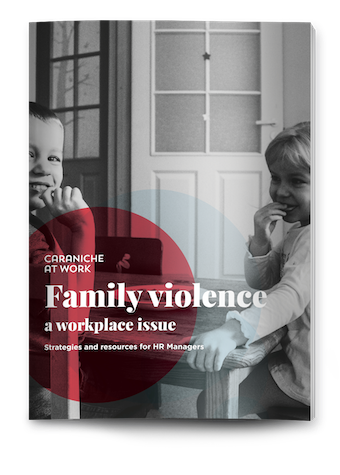
Whether it’s a family member, friend or someone in the workplace, the best way you can help support someone who appears at risk of suicide is to have a conversation. While everyone’s experience is different, there are a number of signs to look out for and some simple, positive steps you can take.
It’s a common myth that asking someone if they are suicidal will put the idea into their head. In reality, asking about suicide openly and directly is the only way to know if someone is at risk. There’s also no evidence that talking about suicide thoughts or behaviour is harmful.
During the conversation, you can help the person you are supporting to create a safety plan to outline some strategies that will help keep them safe.
TIP: The BeyondNow app has a safety plan that can be completed on your phone or on a computer.
When discussing a safety plan, it’s useful to help the individual identify and write down the following:
These might be changes in thoughts, moods or behaviours that suggest increased risk of suicide. Understanding warning signs can help someone take action early. Get them to list their warning signs.
When a person is having thoughts or feelings about suicide, it’s easy for them to get caught up in the pain they are experiencing and forget the positives in their life. Thinking about their reasons to live may help change their focus. Get them to write down the things in their life, large or small, that are important to them and worth living for.
Having a safe space is important in times of suicidal ideation. This includes making the environment around them safe or removing themselves from unsafe situations.
Get them to identify safety strategies to ensure they are in a safe place. For example, avoiding drinking when feeling suicidal, avoiding seeing people who may upset them, giving their medication to someone else to look after.
Suicidal thoughts can make it hard to focus on anything else. Identifying activities that distract from these thoughts is important.
Get them to list some activities they can do by themselves to distract their thoughts. For example, going for a walk, exercising, seeing a movie, playing with a pet, listening to music, taking a shower, or practising relaxation techniques like breathing or mindfulness.
It can be hard to socialise when struggling with suicidal thoughts, however just being around other people can improve mood or make them feel safer.
Get them to identify people they can spend time with or social places they like to go.
Trusted friends and family members can help the individual stay safe and feel better by providing support, or just being there to listen.
Get them to list supportive people they feel comfortable talking to when feeling suicidal.
If they don’t feel comfortable talking to a friend or family member about their suicidal feelings, they might be more comfortable speaking to a trained counsellor. Remind them that professional help is always available when things become too much. Help them to list appropriate professional support they can draw on in times of need. These can include existing mental health practitioners, their doctor, crisis teams (via 000), and local hospital emergency departments.
Include the following for immediate phone support:
Life Line 13 11 14
Suicidal call back service 1300 651 251
beyondblue support service 1300 22 4636
Talking about suicide isn’t easy, but it’s incredibly important. Make sure to take care of yourself too by reaching out to your support network, and taking some time out for yourself. The help lines we’ve listed above also provide support and guidance for friends, family and supporters of people at risk of suicide.

Many of the new tech based EAPs have been making inaccurate claims about traditional EAPs as part of their marketing and promotion.
Read more
Moral injury in the workplace can negatively impact our psychological wellbeing and mental health. Here’s why it matters.
Read more
When choosing how to cultivate wellness in the workplace, it’s never been more important to take an organisation-wide approach. Here’s why.
Read more
Australian workplaces are waking up to the impact of family violence. Caraniche at Work has developed a free report for HR Managers who want to take the lead.